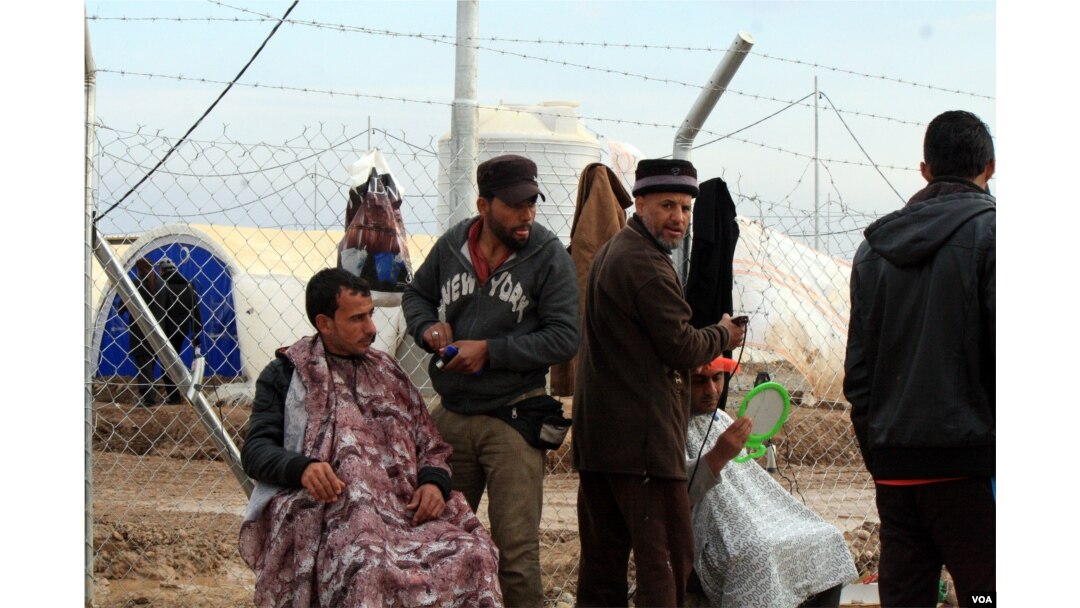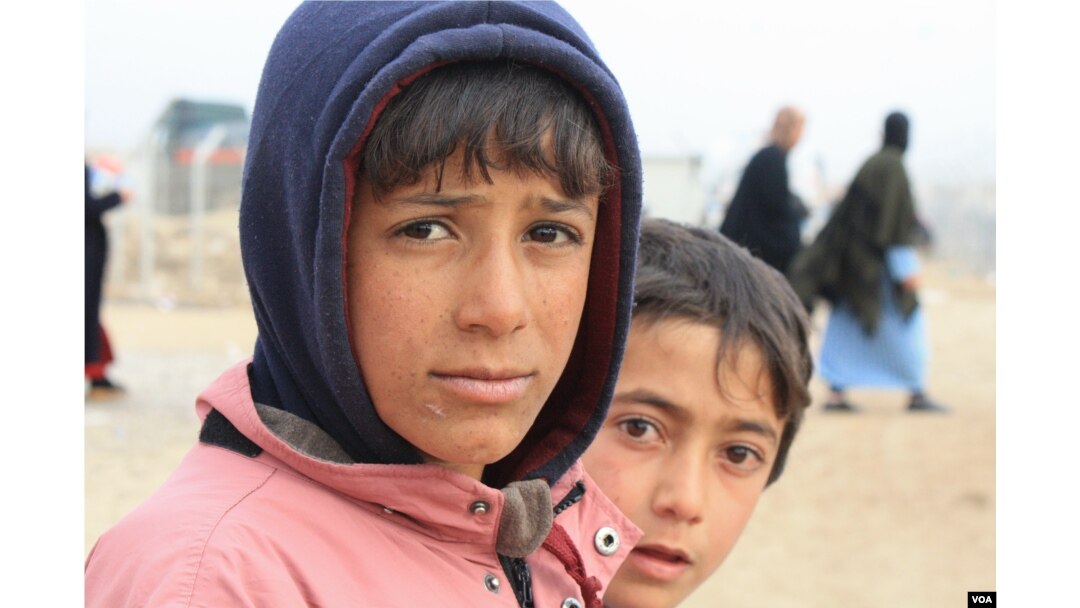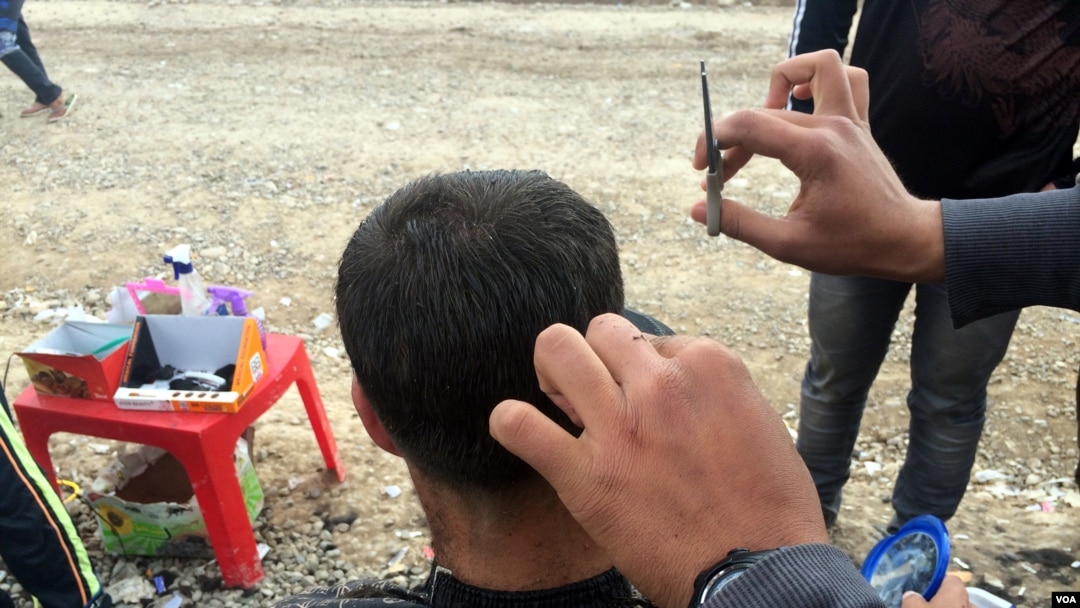In Mosul, Iraq, under so-called Islamic State, whippings and imprisonment for unacceptable haircuts and clothing are commonplace, say fleeing residents. For special occasions, however, barbers still cut and shave in secret, facing dire consequences if they are caught making modern styles. As Abdullah shaves a client at a camp about 30 kilometers from his home city, the 21-year-old man tells VOA about the dangers of being a barber in Mosul. His account, similar to many, has been edited for clarity.
Before Islamic State, my six brothers and I owned five barber shops; but, when they [IS] took over, I started only shaving beards and cutting men's hair at home in secret.
Even if we shaved the beards just slightly differently from their requirements, a scruffy beard and hair all of the same length, we could be arrested. For a small infraction, they would take us to the graveyard at night to dig graves and bury bodies.

Makeshift barbershops dot the many camps in the region surrounding Mosul. Refugees say most people shave their IS-style beards and change their hairstyles as soon as possible after they escape, at the Khazir camp in Kurdish Iraq, Dec. 13, 2016. (H. Murdock/VOA)
I was arrested eight times in the two-and-a-half years I was inside IS-held Mosul. My brother was whipped 450 times for smoking and shaving beards.
I've dug at least 100 graves.
Arrest and grave digging
There must have been spies reporting to the militants, because they knew exactly what I was doing. They came several times and I ran and hid, but finally I knew I could not run forever.
When they came to the front of my house about a year ago, they said, "Are you the barber Abdullah?"
I said, "Yes," and they blindfolded me and pushed me into a car.

Mothers say even barbers that cut small boys' hair in a way inconsistent with IS rules are subject to severe punishments, at the Khazir camp in Kurdish Iraq, Dec. 13, 2016. (H. Murdock/VOA)
In court later that day, I was still blindfolded as I was presented in front of a judge.
"What is your name?" he asked.
"Abdullah," I told him.
"Do you shave people's beards short?"
"Yes," I said. They already knew, so lying would not help.
"Do you cut people's hair in wrong styles?" the judge continued.
"Yes," again; I knew he knew.
Many former Mosul barbers say they continued to practice despite the danger because they had no other way to buy food for their families, at the Khazir camp in Kurdish Iraq, Dec. 13, 2016. (H. Shekha/VOA)
The questions continued, with the judge asking me my address, my marital status and other seemingly mundane details. Then he declared, "You are bringing shame to all Muslims!"
He ordered someone to whip me and they ripped off my shirt, but kept me blindfolded as they lashed me. I don't know how many times.
That night I was placed in an IS prison. It was a converted home of one of the many families that had fled. They took my fingerprints and brought me to the graveyard to dig.
By day I stayed in the prison. There were 400 people crammed into four rooms, and only one vent. They fed us rotten potatoes and what I think were goat droppings. Six nights went by, and each night I gave them my fingerprints before setting out to dig graves. Then I went home, knowing I would be arrested again.
The International Organization for Migration says nearly 94,000 people have fled their homes since the Mosul offensive began in mid-October. At this desolate refugee camp, many people say a modicum of safety and freedom are worth leaving everything else behind, Hassan Shams camp, Kurdish Iraq, Dec. 13, 2016. (H. Murdock/VOA)
Restrictions abound
I kept cutting hair because, what else was I supposed to do? I don't how to do anything else. Should I die of hunger?
Men would come to me despite the dangers of being whipped, imprisoned or fined if caught with a non-regulation hairstyle because sometimes, they wanted to look good. Maybe they were going to visit relatives or get married?
I also got married around that time. You know, if anyone reports to IS that you played music at your wedding, militants will appear at the party and shut it down.
When this is all over, I don't think I'll go home. Maybe I will move to Kurdistan or join the Iraqi Army. The militants took all life from my city.


